The views expressed in our content reflect individual perspectives and do not represent the authoritative views of the Baha'i Faith.
Yesterday’s article on the UN’s two successive observances dealing with food and extreme poverty ended with a question: Do Baha’is advocate socialism, an economic system that forces a large tax burden on the wealthy?
In a word, no.
Abdu’l-Baha explains:
Certainly, some being enormously rich and others lamentably poor, an organization is necessary to control and improve this state of affairs. It is important to limit riches, as it is also of importance to limit poverty. Either extreme is not good. To be seated in the mean is most desirable. If it be right for a capitalist to possess a large fortune, it is equally just that his workman should have a sufficient means of existence.
A financier with colossal wealth should not exist whilst near him is a poor man in dire necessity. When we see poverty allowed to reach a condition of starvation it is a sure sign that somewhere we shall find tyranny. Men must bestir themselves in this matter, and no longer delay in altering conditions which bring the misery of grinding poverty to a very large number of the people. The rich must give of their abundance, they must soften their hearts and cultivate a compassionate intelligence, taking thought for those sad ones who are suffering from lack of the very necessities of life.
There must be special laws made, dealing with these extremes of riches and of want. The members of the Government should consider the laws of God when they are framing plans for the ruling of the people. The general rights of mankind must be guarded and preserved.
The government of the countries should conform to the Divine Law which gives equal justice to all. This is the only way in which the deplorable superfluity of great wealth and miserable, demoralizing, degrading poverty can be abolished. Not until this is done will the Law of God be obeyed. – Paris Talks, p. 152-154.
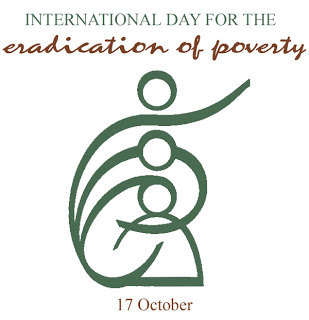 Baha’is envision and diligently work toward a future state of society where love outweighs materialism; where selfless concern for others trumps individual selfishness; where we treat all humanity with the same care and consideration we give to the members of our own family. In fact, Baha’is believe we are all one family – a human family that extends to every person on earth. The essential unity of humanity, the Baha’i writings say, makes us all the branches, leaves, flowers and fruits of one tree.
Baha’is envision and diligently work toward a future state of society where love outweighs materialism; where selfless concern for others trumps individual selfishness; where we treat all humanity with the same care and consideration we give to the members of our own family. In fact, Baha’is believe we are all one family – a human family that extends to every person on earth. The essential unity of humanity, the Baha’i writings say, makes us all the branches, leaves, flowers and fruits of one tree.
This powerful theology of oneness and reciprocity means that Baha’is advocate voluntary giving, not involuntary taxation:
Hearts must be so cemented together, love must become so dominant that the rich shall most willingly extend assistance to the poor and take steps to establish these economic adjustments permanently. If it is accomplished in this way, it will be most praiseworthy because then it will be for the sake of God and in the pathway of His service. For example, it will be as if the rich inhabitants of a city should say, “It is neither just nor lawful that we should possess great wealth while there is abject poverty in this community,” and then willingly give their wealth to the poor, retaining only as much as will enable them to live comfortably. – Abdu’l-Baha, The Promulgation of Universal Peace, p. 238.
Happily, in the one-hundred-plus years since Abdu’l-Baha first told Western audiences about the Baha’i teachings and their spiritual solutions to the world’s economic problems, this principle of voluntary and willing assistance has begun to flower around the globe, and its unprecedented impacts have made history.
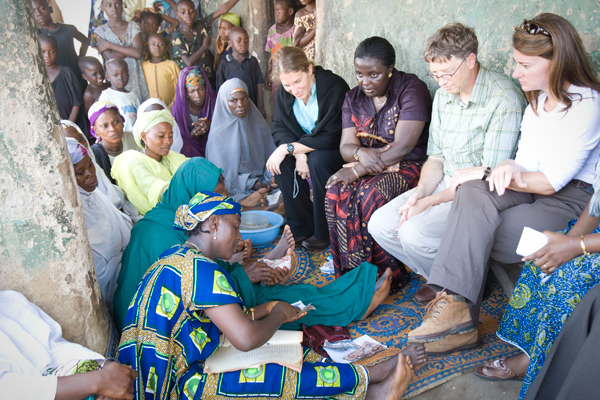
Bill and Melinda Gates in Africa
Wealthy governments and individuals donate large amounts to benefit poor nations and peoples. Billionaires have pledged to give away the bulk of their wealth to benefit the poor. Campaigns conducted by celebrities and regular people and the UN and many other international groups have dramatically reduced the foreign debt poor countries face, raising the standard of living for all of their citizens. Wealthy countries have willingly proposed and passed progressive taxation laws. Massive voluntary foreign aid from countries and NGOs continues to flow to the poorest countries and peoples. And maybe most importantly, a huge contingent of motivated, selfless and altruistic world citizens has arisen to serve others, dedicating their lives to improving the conditions that afflict extremely poor people.
As a result of all this tremendous movement, in the past twenty years the world has actually reduced its extremely poor population by half. This enormous accomplishment, never before attempted in human history, proves Abdu’l-Baha’s point — that a united humanity can eradicate hunger and extreme poverty.
Much work remains. But at this rate, we could completely eliminate extreme poverty in the next few decades. Can you imagine what an incredible human achievement that would represent? It can happen, if we each resolve to think and act in ways that prove all of us belong to one human family.
Read the previous article in the series: World Food Day: Eradicating Extreme Poverty the Baha’i Way
You May Also Like
Comments



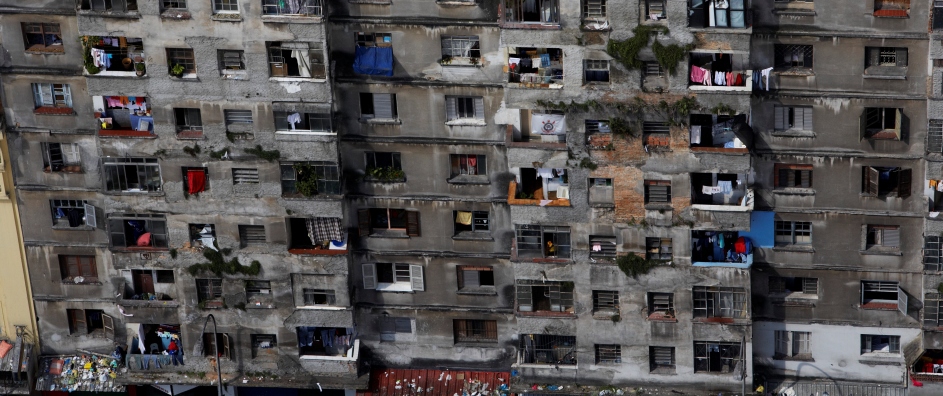


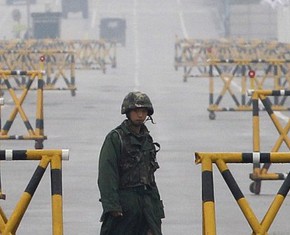
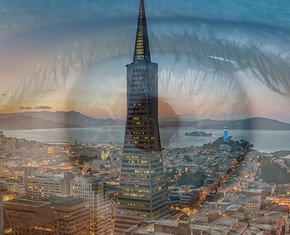









Blessings to Bahai from the 7th SON